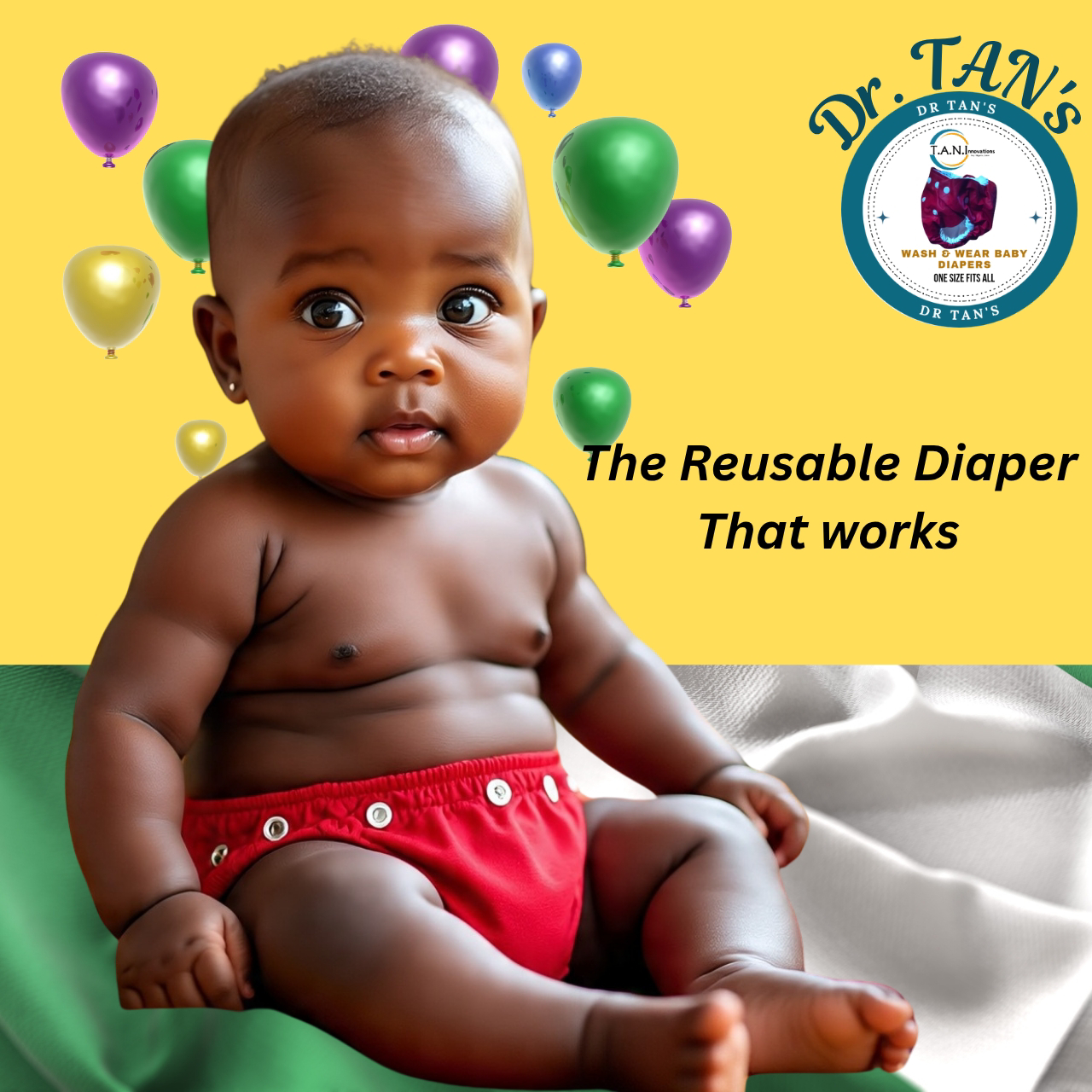Why Reusable Diapers Are the Future of Baby Care in Africa
The face of baby care in Africa is changing—and reusable diapers are at the heart of that change. As more parents seek affordable, eco-friendly, and health-conscious options for their children, cloth diapers are emerging as a powerful solution to many challenges faced across the continent. But why exactly are reusable diapers becoming the future of baby care in Africa? Let’s take a deeper look.
1. Affordability in the Long Run
In a continent where the cost of living continues to rise, African parents are looking for ways to stretch their income without compromising on quality. Disposable diapers may seem cheap at first, but over two to three years, the cumulative cost runs into hundreds of thousands of naira (or thousands in any other African currency).
Reusable diapers, on the other hand, are a one-time investment. A well-made reusable diaper—like Dr TAN’s Reusable Diapers—can last up to 2.5 years or more, even with daily use. For many African families, this long-term savings is a game-changer.
2. Waste Management Is a Growing Problem
Across Africa, waste disposal systems are often under pressure. With millions of babies born yearly and each baby using up to 6,000 disposable diapers before potty training, the result is mountains of non-biodegradable waste clogging up landfills and water bodies.
Unlike disposable diapers, cloth diapers can be washed and reused—reducing household waste drastically. A single child using reusable diapers keeps thousands of disposables out of the environment, making it a more sustainable choice for our communities and the planet.
3. Skin Health and Comfort for African Babies
The African climate can be harsh—hot, humid, or dry depending on the region. Babies with sensitive skin can develop rashes from the chemicals in disposable diapers, especially when worn for long periods.
Reusable diapers, especially those made with breathable, skin-friendly fabrics like microfleece and bamboo cotton, help reduce diaper rashes. Dr TAN’s diapers are designed for comfort, absorbency, and airflow—keeping your baby dry and irritation-free in any weather.
4. Cultural Alignment with African Values
In many African cultures, reuse and resourcefulness are core values. Grandmothers and mothers in the past used cotton napkins and cloths for diapering before disposables became mainstream. Reusable diapers are simply a modern, improved version of what our people already know—updated with better materials, leak guards, and style.
This cultural familiarity makes reusable diapers not only acceptable but also deeply aligned with African parenting values.
5. Entrepreneurial Opportunity for African Women
Reusable diapers are not just for consumers—they represent a growing opportunity for women in Africa to become part of the solution. Many mothers now sell, sew, or promote cloth diapers, turning their parenting journey into a source of income.
Dr TAN’s Reusable Diapers, for example, is proudly African-owned, designed with local needs in mind, and run by a mother who understands both the struggles and strengths of parenting in Africa.
6. Supporting a Greener, Healthier Africa
Africa has the opportunity to lead in green parenting, showing the world that progress doesn't have to mean pollution. Reusable diapers are more than a trend—they are a statement that we care about the next generation, not just in words, but in action.
The Future Is Now
Reusable diapers are no longer a "foreign idea" or a niche product. They are fast becoming the smart, stylish, and sustainable choice for African parents who want the best for their babies—and their environment.
At T.A.N Innovations, we believe every African mother deserves access to products that save money, protect the planet, and prioritise the health of her child.
Make the switch today. Be part of the movement shaping the future of baby care in Africa.
👉 Visit taninnovations.catlog.shop to shop your first set of Dr TAN’s Reusable Diapers and embrace a better way forward.


Comments
Post a Comment